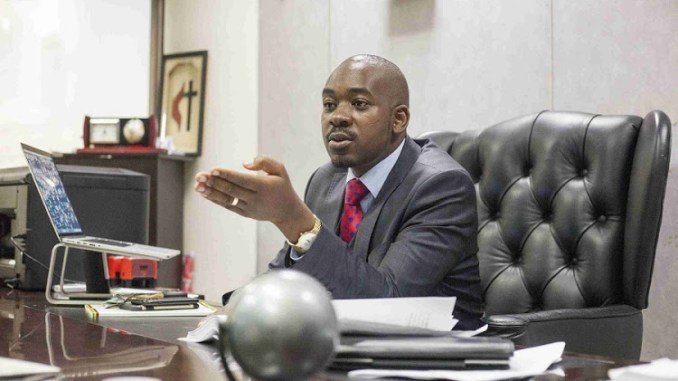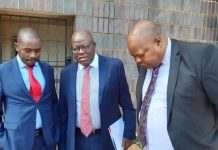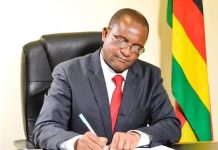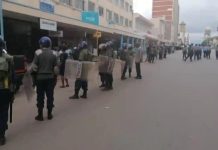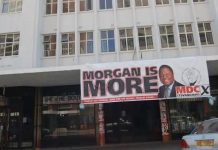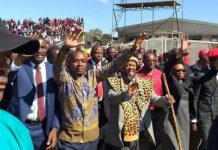When I quizzed him on this, he said the unit was always trying to arrest him for one thing or another. “But this time it is because I will not agree to take up a position that they have created for me that they think will give their government some sort of legitimacy, when that could not be further from the truth”, he said.
Zimbabwe’s Zanu-PF-led government is desperately campaigning for the lifting of sanctions on the country, a misleading cry given that the sanctions are not on Zimbabwe per se, but targeted sanctions imposed by the EU and US on certain individuals and corporations that, along with travel restrictions, have had their cash and assets frozen.
But they will not be lifted until Zimbabwe can demonstrate it practices good governance, democracy, a high standard of human rights, and guarantees freedom of speech. Bringing Chamisa into the fold could be good for its quest.
Since the 2018 election, which was allegedly manipulated and has never been satisfactorily settled by the courts, Chamisa has been, in the words of St Paul in a letters to the Ephesians, “tossed about by the waves and carried around by … the clever cunning of men in their deceitful scheming”.
He was taken to court on behalf of former deputy president of the Movement for Democratic Change — Tsvangirai (MDC-T), Thokozani Khupe who said that in 2016 Chamisa was illegally appointed as a co-deputy president by former president Morgan Tsvangirai. Previously a motion at the 2014 Congress that Tsvangirai could appoint officials outside Congress was passed, but never recorded by then secretary-general Douglas Mwonzoro, who is now firmly in the Khupe camp.
In 2017, Tsvangirai and his colleagues formed the MDC Alliance, a coalition of the parties that had broken away from the original MDC so they could contest the 2018 election as a united front. They arguably won. After Tsvangirai died in February 2018, the MDC Alliance, which had reverted to being the MDC, resoundingly declared Chamisa as his successor at Congress. In the presidential race, Chamisa won more than two million votes, while Khupe got little more than 45,000.
Yet more than a year after the election Khupe’s faction took Chamisa to court, saying he was illegally appointed as deputy -resident of the MDC-T. As the 2014 congress minutes could not be produced, the court found Khupe was the legal leader of the MDC. This was despite that by the time the case was heard, Khupe’s five-year term as deputy president had expired.
Emmerson Mnangagwa’s government is supporting and promoting Khupe as the official leader of the opposition, giving her access to party funds. She has also appropriated party headquarters. She has clung to the MDC-T name, though for all intents and purposes the party united under the alliance before the 2018 poll resumed being the MDC. She has also been firing MPs and councillors loyal to Chamisa, including the MP for Binga, Prince Sibanda, who won far more votes in his constituency than Khupe did across the entire country. This applies to most MDC MPs.
So it is true to say that, for Chamisa, getting into politics has not been easy, not that he expected it to be. He was, perhaps, prepared for a life of leadership by his mother, Alice. He grew up in Chiwara, Gutu, Masvingo. His father, Sylvana, worked in Harare for Dairyboard as a salesperson and it was up to his mother to raise her six children to be hard working, God fearing and responsible.
Like many of Africa’s leaders, among them Nelson Mandela, after whom he was named, life was not easy. Each morning he got up, tidied and went to the river to wash. He then dressed, had a quick breakfast, grabbed a packed lunch and rushed to Gumba primary school, where he started his education in 1984. Later he would return home, do his chores, such as weeding the fields, tending the vegetable garden and herding cattle, before tackling his homework.
“It was tough, but a good life lesson, as you were exposed to the vicissitudes of life. It toughens you up and you learn to do your best,” he recalled.
His mother was a devout Christian and imparted these values to her son, to the extent that he eventually, in addition to his other studies, studied theology. In 2017 was ordained a pastor in the Apostolic Church. It was, possibly, Alice Chamisa’s proudest moment.
When he was nine and still at Gumba primary, the young Nelson’s thirst for justice was first ignited. He heard about the plane crash that claimed the life of Mozambique president Samora Machel. It was popularly assumed at the time that the crash was caused deliberately by SA’s apartheid government forces, something which was only confirmed when testimony given at the Truth and Reconciliation Commission (TRC) in 1996 was declassified in 2017.
“It was at that point I knew I would spend my life fighting for a more just society. I knew it was important to challenge injustice, I knew that to do that I needed to learn about justice. You cannot contest that which you do not understand. The background of marginalisation, deprivation and oppression sets you on a course to understand the other side of life and eventually you see it is commonplace. It is the common battle of all human beings,” he said.

